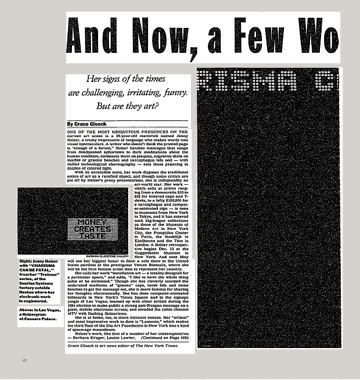Greetings fellow theorists — this is a patron-only edition of Working Theorys // If it resonates, please ♡, share, or comment (i.e. tell the Substack algorithm gods to let more people read it).
Attention is a zero-sum game. When the world’s population grows, the total attention available in the world grows. But otherwise, nothing moves the needle.
In the past, the vast majority of attention accrued to a small group of people. This was when media was centralized and distribution was gated. Now, with the internet ubiquitous and media and distribution decentralized, more people can get a smaller piece of this attention. But if you get in the game, you have to compete.
The past decade or so has been about getting on to whichever platform is on the rise — YouTube, Instagram, Twitter, Vine, TikTok — and building a following. Pick a niche, make content, be consistent, optimize for the native algorithm, cross-promote with other creators, get sponsors, create products and services to sell. The content creation playbook became a proxy for the “attention” playbook.
But I think we’re at a state of maturity with these platforms and playbooks. People want the next playbook to rise above the noise. Yet I don’t think there are any truly new plays left. The new attention playbooks will be full of old plays.
Old like MadMen and all the gambits from the golden age of brand marketing:

For the past few decades companies have jockeyed to create new brands, raise awareness, embed them in popular culture, and make them last. They’ve done this through creating novel names, designing simple yet memorable logos, choosing brand colors, fonts, icons, etc. And the winners have permeated everyday life.

This approach of creating new brand names has been incredibly successful, but it takes a lot of public and user education and a long time, and very few are successful.
But brands don’t just focus on company and product names. They get hyper specific about word association too. These words feed into all “copy” — taglines, slogans, ad campaigns, blogs, how they talk about the brand. There are good words, bad words, words that you can own, and words that you can’t own. And all of this amidst a lot of competition.

Word association is one of the old plays, and it’s interesting to see how it’s evolved. I’m particularly fascinated by short-form brand language: taglines, slogans, “brand words” that are used in abundance in social posts and the like.

The fewer words a slogan has, the bolder it is. If I started a personal computing business tomorrow and wanted to own the word “think,” it’d be hard to compete against a giant like IBM. But perhaps if I chose a slightly more obscure word or I knew how to run the UGC platform playbook already, I could try to make a dent.
Which brings me back to word association fame.
What’s the play for someone in today’s attention game trying to capture some of it?




